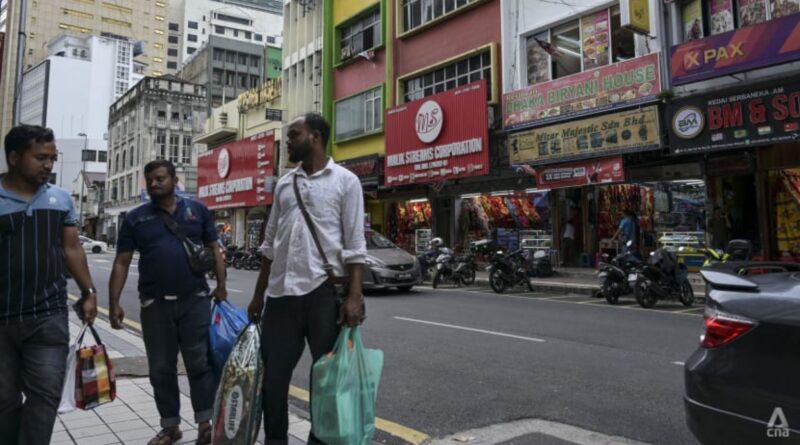In Malaysia, non-Malay language signboards are turning into a political hot potato
KUALA LUMPUR: In an area known to many as “Mini Dhaka” in the heart of Kuala Lumpur, signs in Bengali, Burmese and Nepali were once a common sight on the walls and pillars of buildings.
Following inspections in the past week by the Kuala Lumpur City Hall (DBKL), however, these signs have largely been replaced or removed.
The area is a recent target of efforts by city officials to ensure that all business signage prioritise the use of the national language, Malay.
But with its Facebook posts last month on enforcement efforts showing only Chinese restaurants, some netizens questioned if the DBKL’s actions against the eateries were politically motivated.
Former prime minister Mahathir Mohamad added to the debate when he posted on Facebook on Nov 18 that he had dropped by one of Kuala Lumpur’s shopping complexes and felt he was in China.
“All the signboards are in Chinese with English translations. Nothing in Malay. Not at all. So is this Malaysia. Or have we become a part of China,” Dr Mahathir posted.
DBKL advisory board member Lai Chen Heng told CNA it was a misconception that only Chinese establishments were targeted in the operations.
Action has also been taken against Bangladeshi, Korean and Arabic outlets that did not adhere to DBKL’s by-laws on the national language on signboards, he said.
“The law is the law. And the national language is important and must be given prominence,” he said.
Checks on the ground by CNA found that DBKL inspections in recent days have also covered businesses catering to migrants from countries such as Bangladesh.
Some summonses were issued because the signboards did not follow specifications set by the city council, while others were issued because the signboards differed from what had been submitted to the authorities, said Mr Lai.
Mr Lai admitted that the law on signboards was something that the DBKL should have enforced all along, but had not done so for many years.
“I have no idea why (the operations are being conducted) now. The DBKL have been conducting operations on illegal structures and illegal traders, but not really on signboards. But this is something that had been planned months ago,” he said.
CNA has sent queries to DBKL on the timing of its enforcement.
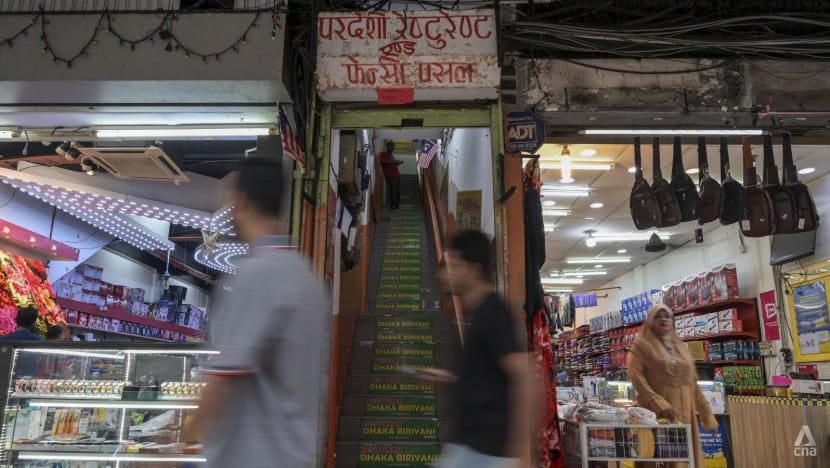
In a statement on Nov 25, DBKL said its enforcement of signage regulations is consistent with the role of Malay as the national language or the official language of Malaysia.
This was in line with the Local Government Act, it said.
DBKL said that all business-premise owners must apply for a licence for their signboards and that owners would need to get their signboards visually verified by the Dewan Bahasa dan Pustaka (DBP), the government agency responsible for coordinating the use of the Malay language and Malay-language literature.
“All advertisements must be in the national language and can also be in any other language. Letters for words in the national language should be given priority and should be of a larger size compared to the letters or words in other languages,” said DBKL.
This year, it has collaborated with DBP to carry out enforcement operations in six shopping malls, with 31 notices being issued, it said.
DBKL, however, said that if the name of a firm, association or company registered under the Registration of Businesses Act 1956, Companies Act 1965 or Societies Act 1966 contains words that are not in the national language, they do not need to be translated into the national language.
Local government expert Derek Fernandez told CNA this means trade names or copyrighted proprietary names, such as McDonald’s and Kentucky Fried Chicken (KFC), do not have to be translated to the national language.
He said that according to the law, advertisements or signs must give prominence to the national language.
“So for example, the word ‘clinic’ must be spelt in Malay as ‘klinik’, although the word ‘clinic’ can also be included in the signboard,” said the former councillor of the Petaling Jaya City Council in the state of Selangor.
“There is no problem if you want to include another language in the signboard. This has been the rule all along and isn’t anything new. It is not a big issue,” he added.
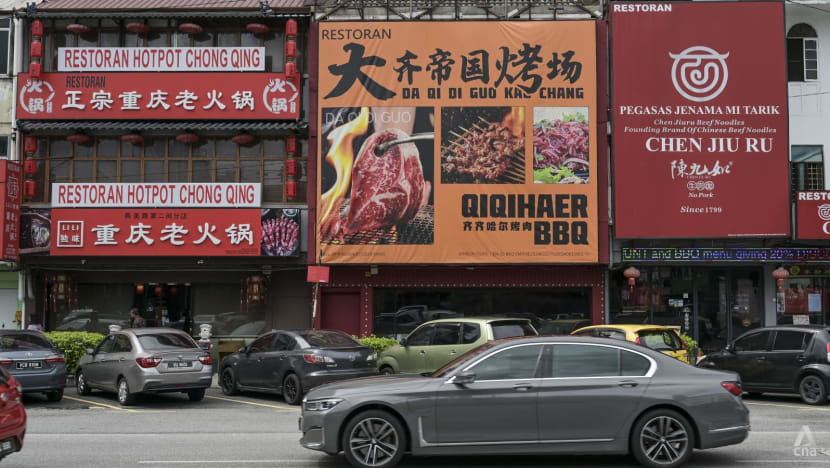
HOW RACE ENTERED THE MIX
Malaysia’s Tourism Minister Tiong King Sing magnified the issue when he spoke up against DBKL’s actions, labelling them extreme and claiming that tourists have questioned the openness and inclusivity of the country.
“There have been some international visitors who have asked me if Malaysia is a racist country or is extreme,” he said in a Facebook post on Nov 24.
The signboard issue follows an uproar over the waving of Chinese flags during a cultural event at an event in Teluk Intan, Perak last month, and Mr Tiong claimed that it could have a negative impact on tourism in the country.
The Star reported that in the first eight months of this year, Malaysia welcomed 2.29 million Chinese tourists, a 160 per cent increase compared to the same period last year.
The signboard issue also made its way to the parliament, with Masjid Tanah Member of Parliament (MP) Mas Ermieyati Samsudin saying Mr Tiong had a responsibility as the minister in charge of culture to defend Malaysia’s national language.
She questioned why his ministry’s target of five million Chinese tourists for the year was a long way from being met, despite money being spent to draw tourists from the country.
Many other Malay politicians also criticised Mr Tiong for his statements on the issue.
Political scientist Dr Syaza Shukri of the International Islamic University Malaysia (IIUM) told CNA that the issue was blown up after the media put the spotlight on Kuala Lumpur’s premises catering to Chinese customers specifically.
“Add on Mahathir’s comments on KL malls, then it became a political issue,” she said.
“The focus is on the Chinese language because of the Malay fear of supposed China-fication of Malaysia because of Chinese economic prowess vis-a-vis other groups. The recent announcement of China to host the lunar new year (celebration) in Malaysia further adds to this narrative,” she said.
Mr Tiong announced on Nov 25 that China had chosen Malaysia to host its first-ever Chinese New Year (CNY) celebration held outside of the country in Jan 2025.
Dr Syaza added that the government should do more to manage the racial narrative in Malaysia and prevent cultural wars from worsening.
“The Chinese community feels they are targeted, the Malays feel that pushback by Chinese shows their ‘disloyalty’, and this can easily become worse. The government needs to step in now,” she said.
On Friday (Nov 29), Federal Territories Minister Zaliha Mustafa reportedly urged “all parties, including politicians, to stop fuelling this controversy”.
“We have many important agendas that require attention, and playing on racial sentiments like this will only create division and polarisation among the public,” she said, as reported by news portal Free Malaysia Today.
DBKL has issued 264 notices and taken action against 36 premises so far this year for non-compliant signboards, she said.
This is not the first language-related signboard controversy in Malaysia.
In 2020, Pahang began taking action against business owners who did not use Jawi on their signboards after the regent of Pahang Al-Sultan Abdullah Ri’ayatuddin Al-Mustafa Billah Shah said in 2018 that the Jawi script should be used widely on road signage, business premises, office signs, government agencies and all education offices.
Those who flouted the rules could be fined of up to RM250 (US$56) and have their business licences revoked.
Two businessmen from the state challenged the rule but lost their bid in 2023, with the court ruling there was “no irrationality, or unreasonableness or unlawfulness” in the directive by the Kuantan Municipal Council.
Asked if Malaysia’s language laws for signboards should be consolidated, Mr Fernandez said different states may have different requirements, and that state assemblies have the power to enact their own laws.
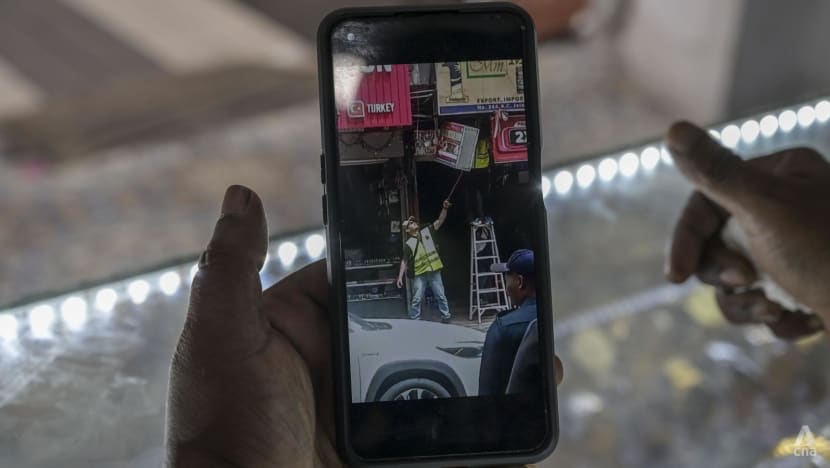
“WE MADE A MISTAKE AND HAVE RECTIFIED IT”
Businesses in the Kuala Lumpur are trying to move on from the latest episode and comply with the rules.
In “Mini Dhaka”, a reference to Bangladesh’s capital, a shop operator who wanted to be known only as Bala believes that action was taken in the area because of people’s grouses against the migrants there.
Mr Bala, a Malaysian, showed CNA pictures and videos of DBKL officials removing signboards and posters in the area.
Regular enforcement operations are also conducted there by DBKL and the Immigration Department to nab undocumented immigrants and those involved in other illicit activities, among other things.
Another shop operator who asked to be known as Raja said he was issued a RM2,000 fine for having an English signboard and was told that he needed to get the name of his business registered first.
“I haven’t had an issue with my signboard since my shop opened about four years ago so I don’t know why I am suddenly getting a summons and why my signboard has to be changed,” he said.
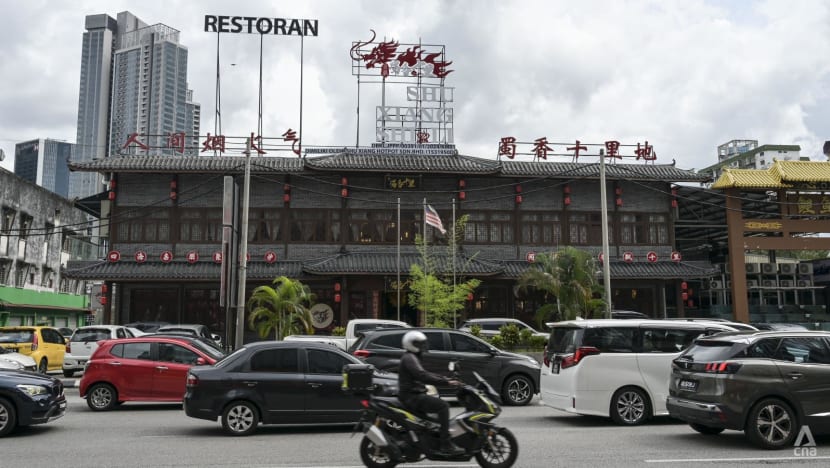
At Jalan Imbi, at least three of the restaurants mentioned by DBKL in its Oct 12 Facebook post have amended their signboards.
Two restaurants – Chen Jiu Riu Beef Noodles and Steam Era Seafood Restaurant – have added Malay to their signboards, complementing the Chinese and English words that existed previously.
Shu Xiang Shili restaurant has erected a prominent sign in Malay on its building, where previously there were only Chinese characters.
These businesses cater mainly to Chinese tourists and local Chinese.
Speaking to CNA, the manager of a restaurant on Jalan Imbi acknowledged it and the other restaurants had not adhered to DBKL’s by-laws.
“We made a mistake and have rectified it. There aren’t any issues now,” said the manager, who did not want to be identified. He added that tourists and other patrons are unlikely to be deterred from dining at the restaurant because of the issue.

